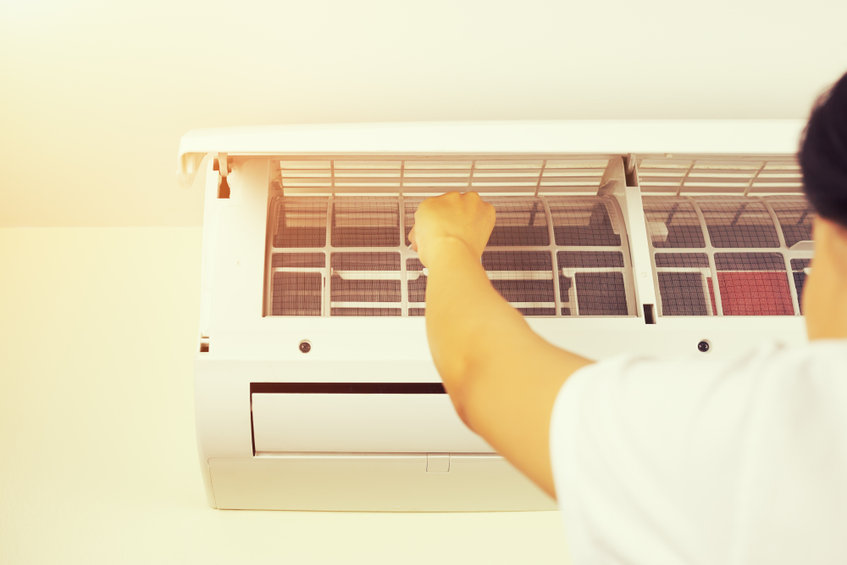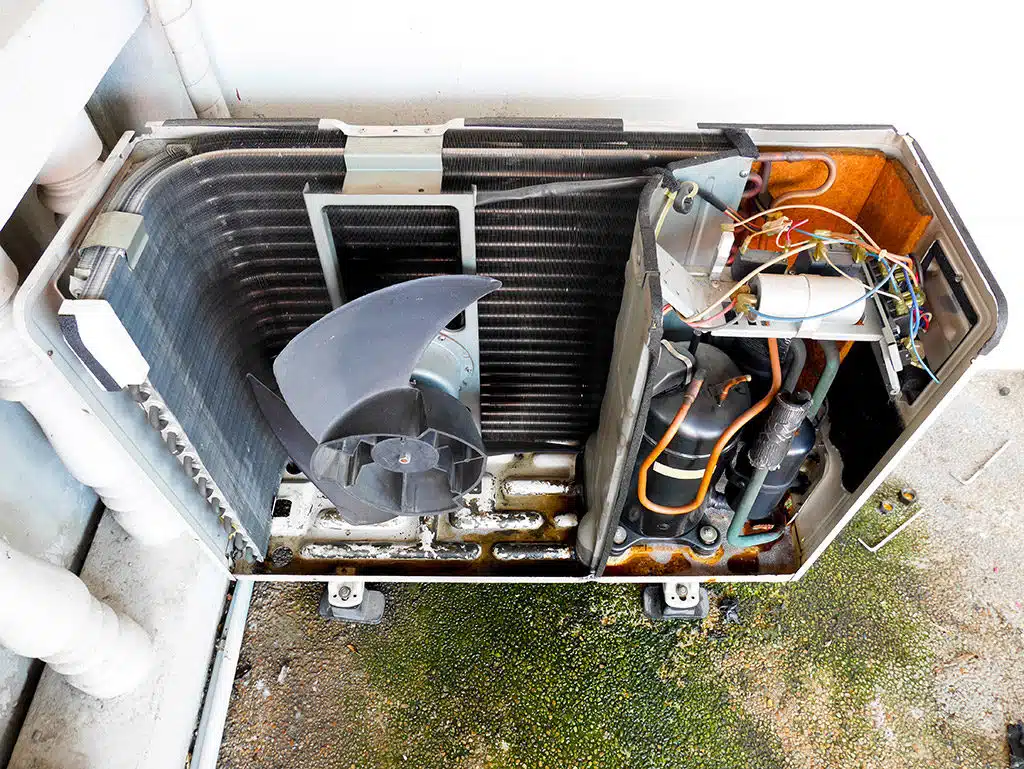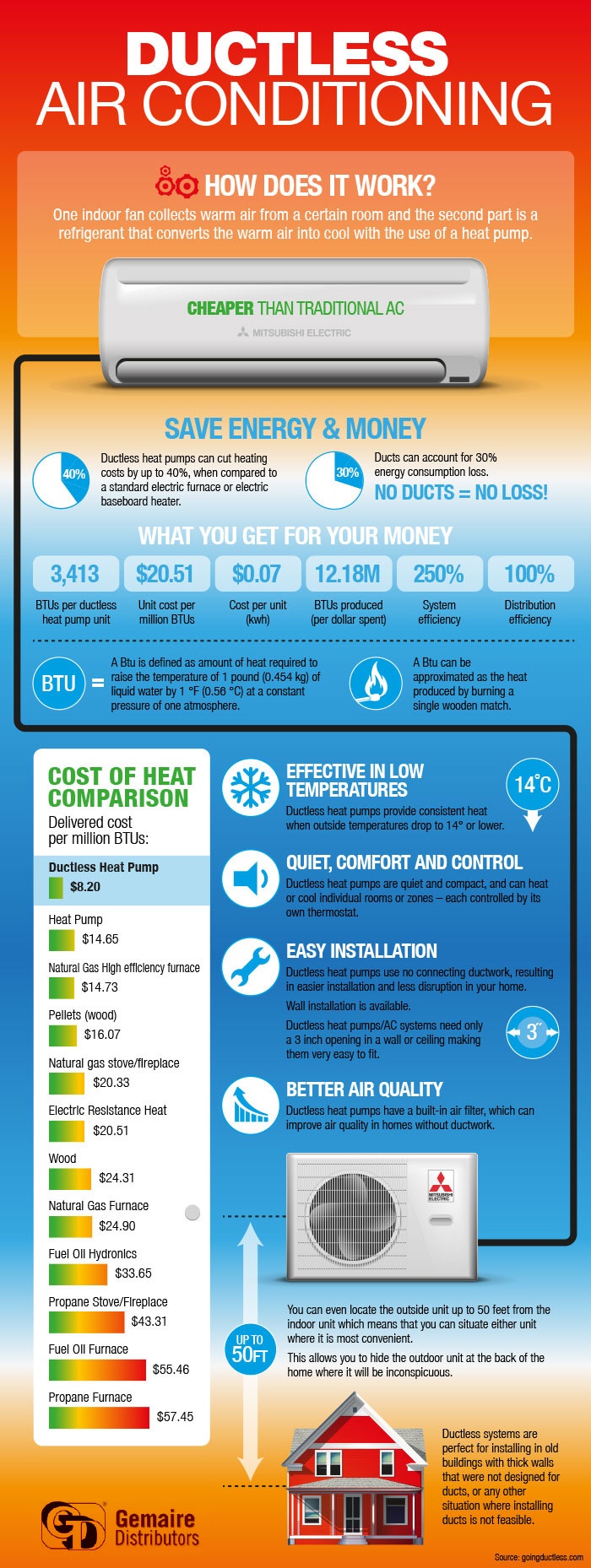Imagine your a/c unit as a master carver, expertly carving away at the oppressive heat in your home, leaving behind a trendy, comfy oasis. Have you ever asked yourself how this modern wonder achieves such a feat?
The complex dance of cooling agents, coils, compressors, and ducts all operate in consistency to develop that invigorating blast of chilly air. However just how exactly do these components come together to produce that much-needed reprieve from the sweltering heat?
Allow's reveal the inner operations of air conditioning system and demystify the scientific research behind staying cool.
Key Takeaways
- Effective Air conditioners use refrigerants to take in and release warm, improving cooling and power performance.
- Regular upkeep ensures optimal efficiency, long life, and energy cost savings.
- Proper sizing and layout prevent energy waste and ensure also cooling distribution.
- Understanding air movement dynamics and optimization boosts cooling down performance and comfort degrees.

The Fundamentals of Air Conditioning
Recognizing the principles of cooling can considerably improve your expertise of just how these systems run effectively. Energy efficiency is an important facet of cooling, as it not just affects your electrical energy expense however likewise the atmosphere. Reliable air conditioning unit use much less power to cool an area, making them economical and environmentally friendly. By buying an energy-efficient unit, you can appreciate a comfortable interior setting while decreasing your carbon impact.
Moisture control is one more important feature of cooling. Ac unit aid regulate the moisture degrees in your house, creating a much more comfy ambience. Excess humidity can cause mold and mildew development and discomfort, while low moisture degrees can create completely dry skin and breathing problems. A well-kept a/c unit can effectively manage humidity, ensuring a healthy and balanced and pleasurable living setting for you and your family members.
Comprehending how air conditioning systems manage power efficiency and humidity control can assist you make notified decisions when selecting and using these systems in your house.
Understanding Refrigerants and Their Function
When it comes to a/c, comprehending cooling agents and their role is essential. You'll discover the relevance of refrigerants in cooling down systems and exactly how they help with the warmth transfer process.
Furthermore, considering the ecological effect of cooling agents is necessary for sustainable cooling services.
Function of Refrigerants

Cooling agents play a vital duty in the operation of a/c by promoting the transfer of warm. The effectiveness of a cooling agent straight influences the cooling process and power intake of the system.
When taking into consideration cooling agents, it's critical to consider their effectiveness versus their environmental implications. Some cooling agents contribute to ozone depletion and global warming, prompting the search for greener options. Sustainable steps focus on finding refrigerant alternatives that are energy-efficient and have marginal environmental influence.
Producers are significantly buying developing new cooling agents that align with sustainability objectives. By prioritizing refrigerant efficiency and discovering lasting choices, the cooling sector aims to minimize its carbon impact and decrease environmental injury.
Ecological Effect Factors To Consider
Thinking about the ecological effect of cooling agents is crucial in assessing the sustainability of a/c systems. When assessing the ecological implications of ac unit, 2 key elements to think about are energy performance requirements and carbon impact evaluation.
- Power Performance Specifications:
- Energy-efficient ac unit eat less electricity, decreasing general energy intake and environmental impact.
- Carbon Footprint Analysis:
- Carrying out a carbon impact evaluation aids in understanding the amount of greenhouse gas emissions connected with air conditioning operations.
- Cooling agent Choice:
- Selecting refrigerants with lower Global Warming Possible (GWP) can significantly decrease the environmental impact.
- Correct Disposal:
- Guaranteeing correct disposal of old cooling agents stops them from harming the setting.
- Regular Maintenance:
- Routine maintenance of air conditioning systems can improve efficiency, lowering energy consumption and ecological influence.
The Process of Warmth Transfer
When your air conditioner operates, it relies on a procedure of warm transfer to cool your space efficiently. This mechanism entails the absorption of heat from the indoor air and the exchange of thermal energy to keep a comfy temperature.
Comprehending this crucial facet assists you realize exactly how a/c unit effectively manage the environment in your home. https://tulsehillacinstallation.co.uk
Heat Absorption System
To properly cool the air in your space, air conditioning unit use a heat absorption mechanism that efficiently moves warmth. This system plays a vital role in keeping temperature law and using innovative cooling modern technology.
Below's how the warm absorption procedure functions:
- Refrigerant Blood circulation: The cooling agent absorbs warm from the indoor air.
- Compression: The compressor raises the stress of the refrigerant, causing its temperature to climb.
- Condensation: The hot, pressurized cooling agent releases heat outside as it condenses right into a fluid.
- Development Shutoff: This element lowers the cooling agent stress, creating it to cool off and evaporate.
- Dissipation: As the refrigerant evaporates, it soaks up warm from the interior air, starting the cycle once again.
Thermal Energy Exchange
In the process of thermal energy exchange, heat transfer plays a crucial duty in how air conditioning system operate to cool down interior rooms effectively. Thermal characteristics dictate that warmth constantly streams from a warmer location to a cooler one. Air conditioning unit utilize this concept by drawing out warmth from interior air and launching it outside, making use of cooling agents to assist in the transfer.
Reliable thermal energy exchange is crucial for the power efficiency of a cooling system. By maximizing warm transfer processes, ac system can cool areas effectively while decreasing energy intake. Comprehending the characteristics of heat transfer is necessary for designing and operating a/c that offer the wanted level of comfort without unneeded power waste.
Evaporator Coils and Their Feature
Recognizing the feature of evaporator coils is essential to realizing just how a/c effectively cool indoor spaces. These coils play an important role in the cooling procedure by taking in warm from the interior air, which is after that distributed back as cool air.
Right here are some bottom lines concerning evaporator coils:
- Evaporator coil effectiveness straight influences the cooling efficiency of the ac unit.
- These coils include cooling agent that evaporates as it absorbs heat from the interior air.
- As the refrigerant vaporizes, it changes from a fluid state to a gas, cooling the air in the process.
- The cooled down air is then dispersed throughout the room through the duct.
- Appropriate upkeep of the evaporator coils, such as normal cleaning, is vital to ensure leading performance and power efficiency.
Compressor and Condenser Workflow
Successfully cooling indoor spaces involves recognizing exactly how the compressor and condenser work together in an air conditioning system. The compressor plays a critical role in the cooling process by pressurizing the cooling agent gas, raising its temperature and power degree. This high-energy gas then streams to the condenser, where it releases warm to the surrounding atmosphere, causing it to condense right into a high-pressure liquid.
The condenser better cools this fluid through warm exchange with the outside air, converting it back into a low-pressure gas. This procedure improves power efficiency and increases the system's cooling power. Temperature guideline is achieved as the refrigerant cycles via these system parts, absorbing warmth inside your home and releasing it outdoors.

Air Ducts and Air Distribution
To optimize airflow and assurance constant cooling throughout your room, proper installation and maintenance of air ducts are important. Ensuring that your duct are designed successfully and in a way that promotes optimal airflow dynamics is critical for the general efficiency of your air conditioning system. Ventilation approaches play a considerable duty in preserving indoor comfort degrees, so it's important to take note of the following:
- Duct Style: Correctly created duct aid see to it that great air gets to every corner of your area effectively.
- Airflow Characteristics: Comprehending exactly how air actions with the air ducts can assist you determine any potential issues that may interfere with the air conditioning process.
- Routine Upkeep: Keeping your air ducts clean and free of blockages is crucial for maintaining air flow and system efficiency.
- Securing Leakages: Guaranteeing that there are no leaks in your ductwork assists stop amazing air from escaping, boosting power performance.
- Balancing Airflow: Properly stabilizing the airflow in different areas can assist preserve regular cooling throughout your home or office.
Regularly Asked Inquiries
How Does the Size of an Air Conditioning System Affect Its Effectiveness and Air Conditioning Capability?
When picking an a/c, bear in mind that size issues. A system that's too small might have a hard time to cool your area efficiently, while an oversized one might waste power and not dehumidify effectively. Ensuring correct sizing factors to consider will certainly enhance effectiveness and air conditioning capability.
The best size directly affects performance, helping you stay comfy without unneeded prices. So, when it comes to air conditioners, bear in mind dimension for finest performance and cooling power.
What Are Some Typical Maintenance Tasks That Can Assist Enhance the Life-span of an Ac Unit?
Regular upkeep jobs can considerably prolong the life of your air conditioning unit. Keep in mind to replace filters to ensure correct air flow and clean coils to improve cooling down efficiency.
Furthermore, adjust your thermostat for precise temperature analyses and examine the refrigerant levels for finest efficiency.
Can Air Conditioners Be Used along with Various Other Air Conditioning Approaches, Such as Followers or Dehumidifiers?
Yes, you can boost your cooling experience by integrating your air conditioning unit with followers. This partnership can assist distribute great air more effectively, giving a more comfortable setting and potentially saving power.
Furthermore, using a dehumidifier along with your ac system can improve cooling down effectiveness by reducing moisture degrees, making your room really feel cooler.
Think about these alternatives to optimize your cooling configuration and boost your overall convenience during warm days.
Exist Any Type Of Environmental Concerns Connected With the Use of Air Conditioners, and How Can They Be Mitigated?
When using air conditioning system, be mindful of environmental worries like energy intake and greenhouse gas emissions.
To minimize these problems, take into consideration lasting cooling approaches and eco-friendly choices.
You can minimize the impact of air conditioners by using energy-efficient designs, preserving them on a regular basis, and including other cooling approaches like followers or dehumidifiers.
What Developments Are Being Made in Air Conditioning Modern Technology to Make Units Extra Energy-Efficient and Environmentally Friendly?
To make a/c more energy-efficient and green, improvements like smart modern technology and green attributes are being developed. These innovations concentrate on raising energy financial savings and minimizing ecological impact.
By incorporating smart innovation, cooling units can optimize performance based on use patterns. Making use of environment-friendly materials and components likewise contributes to making these systems more lasting.
These improvements aim to boost effectiveness while minimizing the ecological footprint of air conditioning technology.
Final thought
So, currently you know just how air conditioning unit work!
From the refrigerants circulating through the system to the warm transfer procedure, each component plays an important role in keeping you cool.
The evaporator coils soak up warm, the compressor and condenser launch it, and the air ducts distribute the awesome air throughout your room.
Following time you activate your AC, keep in mind the scientific research behind all of it! Stay awesome!
